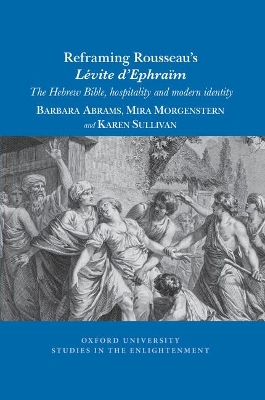Le Lévite d’Ephraïm, Rousseau’s re-imagining of the final chapters of the Book of Judges, contains major themes of Rousseau’s oeuvre and lays forth central concerns of his intellectual projects. Among the themes highlighted in the concentrated narrative are: the nature of signs and symbols and their
relationship to the individual and society that produce them; the role of hospitality in constituting civil society; the textually-displayed moral disorder as foreshadowing political revolution; and finally, the role of violence in creating a unified polity. In Le Lévite d’Ephraïm, Rousseau explores the psychological and communal implications of violence and, through them, the social and political context of society. The incarnation of violence on the bodies of the women in this story highlights the centrality of women in Rousseau’s thought. Women are systematically dismembered, both literally and figuratively, and this draws the reader’s attention to the significance of these women as they are perennially re-membered inside and outside the text. This study of these themes in Le Lévite d’Ephraïm places it in
relation to the biblical text at its origins and to Rousseau’s own writings and larger cultural concerns as he grapples with the challenges of modernity.
- ISBN13 9781800348134
- Publish Date 10 May 2021
- Publish Status Active
- Publish Country GB
- Imprint Voltaire Foundation
- Format Paperback
- Pages 256
- Language English
